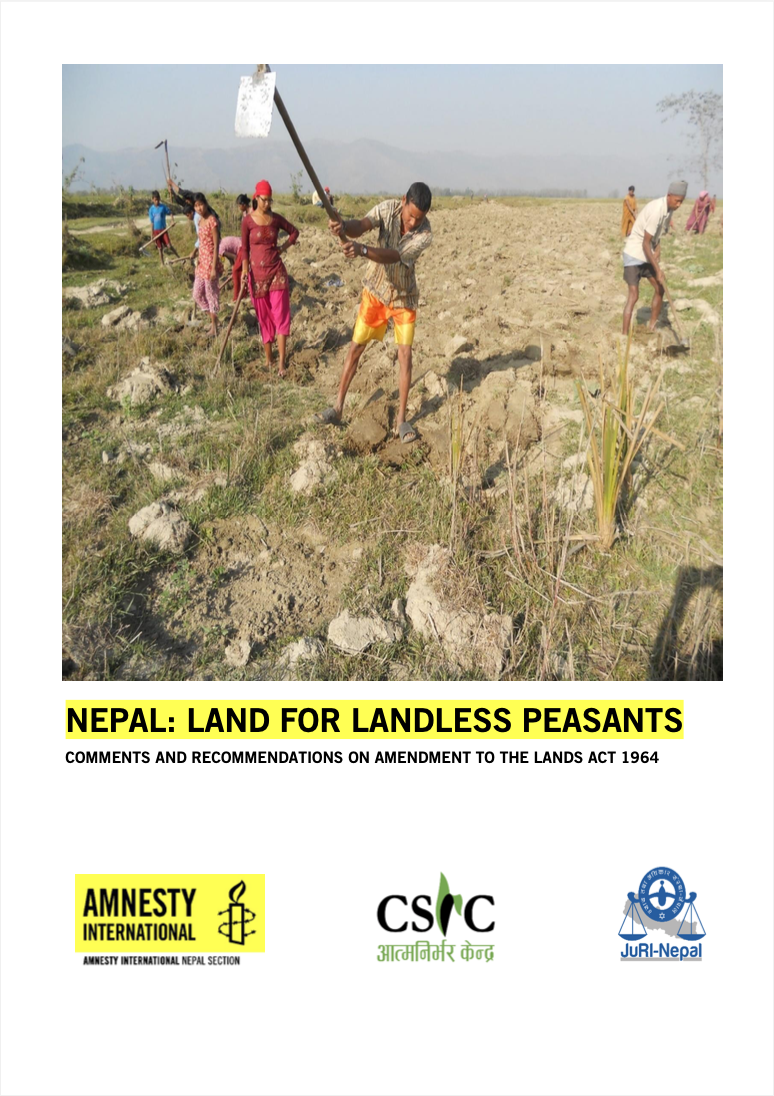Resource information
ABSTRACTED FROM OVERVIEW:
The Lands Act 1964 was the first comprehensive piece of legislation which came into existence to pave the way for land reform. Key objectives of the Act were a) enhancing the standard of living of people dependent on land including through ensuring “equitable distribution of agricultural land”; and b) securing rapid economic development and wellbeing of the general population through attaining optimum agricultural growth.
A consultation meeting of a group of civil society organizations held in May 2019 assessed the proposed eighth amendment and expressed concern over the government’s segmental and piecemeal approach to addressing the land issues. This approach is contrary to the observations made by the 2010 High Level Scientific Land Reform Commission after assessing the past efforts made in the name of land reform.
Amnesty International Nepal, CSRC and JuRI-Nepal are also concerned by the government’s failure to enact or amend laws to address other constitutional promises (for example, land reform under Article 25 and access of peasants to cultivable land under Article 42) related to land under fundamental rights and the Directive Principles (mentioned below). Amnesty International Nepal, CSRC and JuRI-Nepal thus underline the importance of further legal arrangements to fill in the legislative gap in terms of enhancing access to land for marginalized and disadvantaged groups including through fulfilling the longstanding commitment to land reform. To assist that process, the three organizations have prepared the following comments and recommendations.


